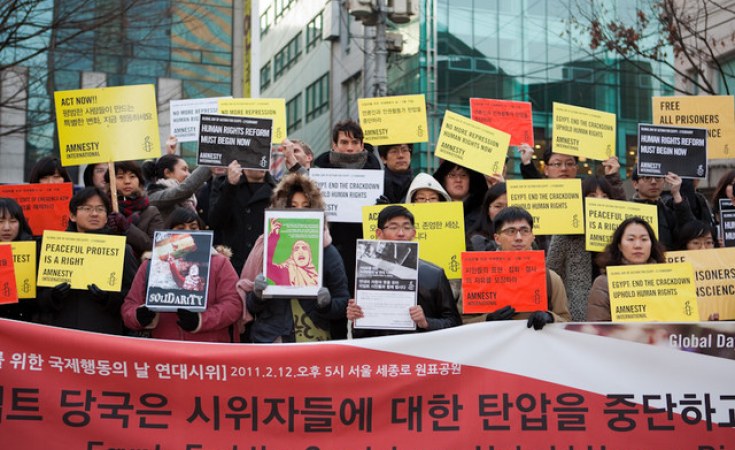Cape Town — Spurred by popular uprisings in North Africa, pressure to respect the human rights of all Africans is growing across the continent, but political leaders are standing in the way, says the internationally-respected lobby group, Amnesty International.
In its annual report, released on Thursday, Amnesty says protection of human rights in sub-Saharan Africa will probably not develop as "quickly and dramatically" as in North Africa, and in some places "the situation might even get worse".
"However, factors such as sustained economic growth, demands for better governance, an emerging middle class, stronger civil society and improved access to information and communication technology will gradually contribute to a better human rights situation.
"The question," Amnesty adds, "is whether Africa's political leadership will embrace these changes or see them as a threat to their hold on power. In 2011, most political leaders - in their reactions to protests and dissent - were part of the problem, not the solution."
The organisation's 2012 report, "The State of the World's Human Rights", assesses human rights conditions in 155 countries around the world during 2011.
In its chapter on sub-saharan Africa, the report says the North African uprisings resonated with people on the rest of the continent, especially in countries with repressive governments.
"Trade unionists, students and opposition politicians were inspired to organize demonstrations. People took to the streets because of their political aspirations, the quest for more freedom, and a deep frustration with a life in poverty," the report said. "They protested against their desperate social and economic situation and the rise in living costs... [But] the brutal suppression of demonstrations during 2011 illustrated how the region's political leaders learned little from what happened to their peers in the north."
Amnesty selected events in Sudan, Uganda, Zimbabwe and Swaziland for special mention.
- "Anti-government protesters took to the streets in Khartoum and other towns across Sudan, from the end of January onward. They were beaten by security forces, and dozens of activists and students were arbitrarily arrested and detained. Many were reportedly tortured in detention."
- "In Uganda, opposition politicians called on people to imitate the Egyptian protests and take to the streets, but violence marred the demonstrations. In February, the Ugandan government banned all public protests. The police and army used excessive force against protesters, and opposition leader Kizza Besigye was harassed and arrested."
- "In Zimbabwe, a group of about 45 activists were arrested in February, merely for discussing events in North Africa. Six of them were initially charged with treason."
- "In April, the Swaziland authorities repressed similar protests with excessive force."
The report added that security forces used live ammunition against protesters in Angola, Burkina Faso, Guinea, Liberia, Malawi, Mauritania, Nigeria, Senegal, Sierra Leone and South Sudan. "The authorities usually failed to investigate the excessive use of force and nobody was held to account for the deaths caused."
The Amnesty report did not limit its criticism of political leaders to Africa. In a news release issued with the report, Amnesty's secretary-general, Salil Shetty, said the failures of world leadership made the United Nations Security Council seem "tired" and "unfit" for its purpose.
"Failed leadership has gone global... with politicians responding to protests with brutality or indifference. Governments must show legitimate leadership and reject injustice by protecting the powerless and restraining the powerful."
Support for protest movements from global and regional powers has not been backed by action: "It has all too often become clear that opportunistic alliances and financial interests have trumped human rights as global powers jockey for influence in the Middle East and North Africa."


